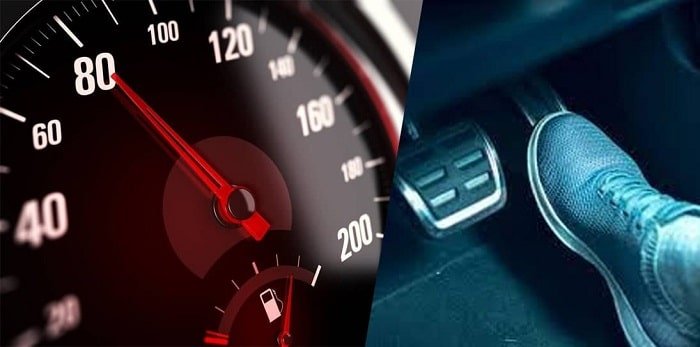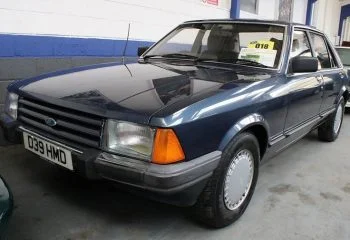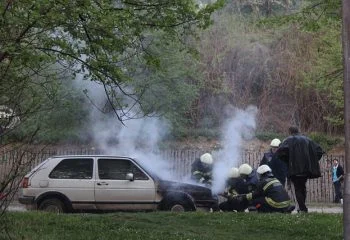Have you ever been driving your car and noticed that it jerks when you press the gas pedal? Not only is this a sign of a potential problem, it can also be dangerous.
When you press down on the gas pedal, more fuel is sent to the engine which causes it to increase speed and power. If something interrupts this process or is not working correctly, then your car may jerk and hesitate instead of accelerating smoothly.
In this blog post, we’ll discuss some common causes of car jerk when accelerating and how to fix them.
What's in this post?
How to diagnose the problem
The first step in diagnosing the cause of jerking when accelerating is to determine what type of jerk you’re experiencing. Is it a sputtering, surging, or stalling sensation? Or does the car feel like it’s being pushed forward in a jolting manner? Once you’ve identified what kind of jerk you’re experiencing, you can then start to diagnose the possible causes.
Identifying what kind of jerk you’re experiencing is important because it can help you narrow down the potential causes. For example, a sputtering sensation could be caused by an issue with your fuel system, whereas a jolting feeling could be due to faulty spark plugs or worn out brakes.
What Cause Car Jerks and Check Engine Light Come On
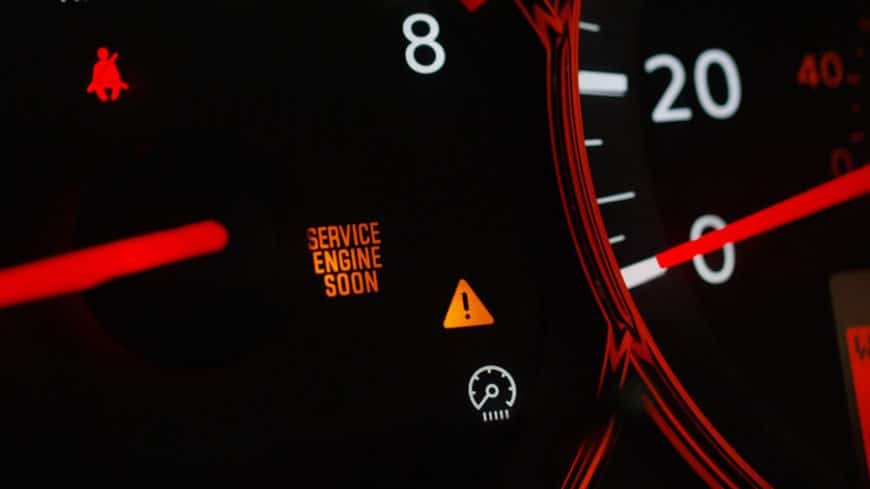
Now, your car jerks when you accelerate, but there is no check engine light on. I know, it’s confusing. This could be due to an issue with your vehicle’s fuel system or transmission.
Spark Plugs are Worn Out
One of the most common causes of car jerk when accelerating is worn out spark plugs. Spark plugs are responsible for igniting the gasoline in your engine to produce power. Over time, spark plugs can become clogged or corroded, which reduces their ability to ignite the fuel properly.
If this happens, your engine will struggle to generate power and may cause your car to jerk when accelerating. To fix this issue, you’ll need to replace your spark plugs with new ones.
Fuel Pressure Regulator Malfunction
This component helps to maintain proper fuel pressure in order to ensure efficient combustion, and it also helps prevent excess fuel from entering the combustion chamber. If something were to happen to disrupt this process—such as a cracked vacuum hose—then you may notice jerkiness when attempting to accelerate due to improper fueling in the engine cylinders.
In addition, if your fuel pump has failed (or is failing) then its output pressure will be lower than what is necessary for smooth acceleration, leading to more noticeable jerks and stutters while driving.
Throttle Position Sensor Problem (TPS)
Essentially, this sensor tells your engine how much fuel to inject into each cylinder based on how much pressure you are applying to the accelerator pedal.
If there is an issue with this sensor, then it may not be accurately relaying information about how much fuel should be injected, causing jerking as you accelerate or release the accelerator pedal. The TPS is relatively easy to replace and should only require a few tools and some basic know-how.
Fuel Injection Problem
If there isn’t an issue with your TPS, then you might have a faulty fuel injection system. The way modern cars work is that they inject fuel directly into each cylinder rather than mixing air and fuel together before entering the engine like older cars did.
If there’s an issue with one or more injectors, then it could be causing jerking as you apply or release pressure on the accelerator pedal. This problem can usually be diagnosed using a scan tool and corrected by replacing any faulty components or cleaning out clogged injectors.
Clogged Fuel Filter
A clogged fuel filter can cause your car to jerk when accelerating from a stop. The fuel filter is responsible for removing dirt and debris from the fuel in your car so that it can travel efficiently through the engine.
Over time the filter gets dirty and clogged which can impede the flow of fuel causing jerky acceleration when starting off from a full stop. To avoid this, make sure to have your fuel filter regularly checked and replaced as necessary by an automotive professional.
Bad Fuel Pump
The fuel pump is responsible for pumping gasoline from your tank into the engine where it’s used for combustion. If your fuel pump is not working correctly, then there won’t be enough fuel entering the engine and it won’t be able to generate enough power to move forward smoothly.
To diagnose this issue, you’ll want to check all of the hoses connected to the fuel pump as well as inspect the pump itself for any signs of damage or wear-and-tear. If necessary, you may need to replace the fuel pump with a new one in order for your car to run properly again.
Issue with the transmission
A transmission problem could cause your car to jerk while accelerating because it can cause the RPMs (revolutions per minute) to increase too quickly, resulting in the jerking motion. To fix this issue, you will need to take your car into a certified mechanic who can inspect and repair any issues with the transmission system.
Car Jerk When Accelerating But No Check Engine Light
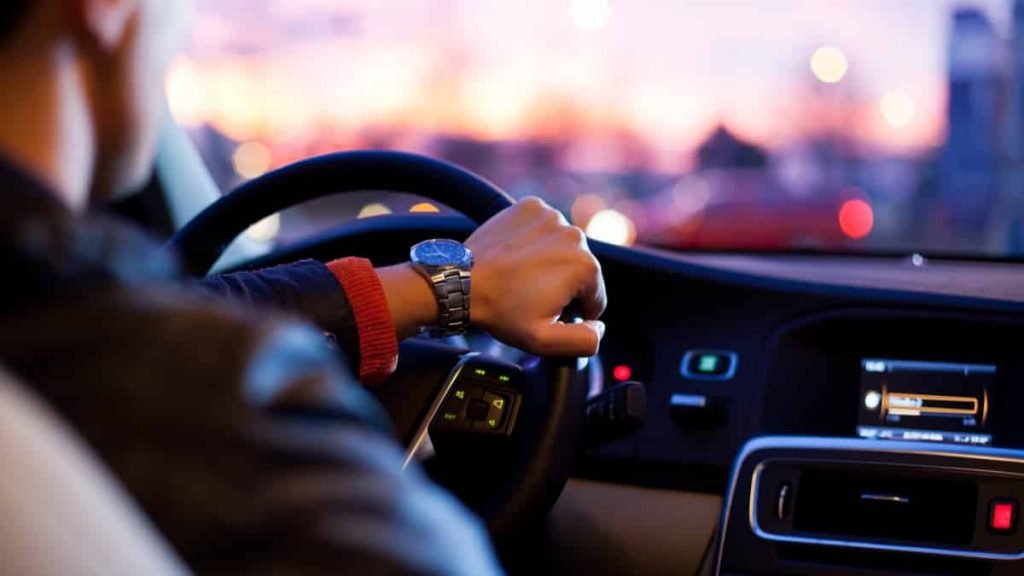
Clogged Air Filter
The air filter helps remove dirt and debris from the air entering into your engine so that it doesn’t get contaminated by these particles while running. Over time, however, the air filter can become clogged with dirt and dust which restricts airflow and reduces power output from your engine.
To fix this issue, you’ll want to replace your air filter with a new one so that clean air can flow freely into your engine once again.
The Oxygen Sensor or Catalytic Converter
The oxygen sensor monitors the levels of unburned oxygen within the exhaust system. It then sends that information back to the engine’s computer so that it can adjust the air-to-fuel ratio as necessary for optimal performance.
If your oxygen sensor fails, then your engine will not receive accurate information about the amount of oxygen in your exhaust, resulting in poor performance and jerking when you accelerate.
The same goes for issues with your catalytic converter; if it becomes clogged or fails entirely, then you may experience jerks and stalls when trying to accelerate due to incorrect information being sent back from the vehicle’s other sensors.
Mass Airflow Sensor Issues
This component measures how much air is entering your engine’s intake manifold so that its computer can make adjustments as necessary for optimal operation. If this part fails or becomes clogged with dirt or debris then inaccurate readings will be sent back to the computer, causing poor performance like hesitation upon acceleration and even stalling at times.
In order for this issue to be properly diagnosed and fixed, you should take your car into an auto repair shop where they can test all relevant components using specialized equipment.
Bad Ignition Coils
Ignition coils are responsible for converting the low voltage from your battery into the high voltage required by your spark plugs to ignite the air-fuel mixture in your engine’s cylinders. If your ignition coils have gone bad, it can lead to misfires which will cause your car to jerk when you accelerate. Fortunately, replacing bad ignition coils is relatively easy and inexpensive.
Idle Air Control (IAC) Valve
Another common cause of car jerks when accelerating is an issue with the idle air control (IAC) valve in your engine’s intake system. The IAC valve helps regulate idle speed by controlling the amount of air entering your engine’s cylinders at idle speed.
If the IAC valve needs to be adjusted or repaired, it can cause jerking as you accelerate because it isn’t allowing enough air into your engine to keep it running smoothly. This is often an easy fix, as long as you have access to a vacuum gauge or other diagnostic tools.
Vacuum Leak
Vacuum leaks are another possible cause of car jerks when accelerating. Vacuum leaks happen when there is a tear or break in the rubber hose connecting components in your vehicle’s intake system, such as the fuel injectors or throttle body.
When this happens, air can get into your engine where it shouldn’t be, leading to misfires and resulting in a jolt as you accelerate. Fortunately, diagnosing and repairing vacuum leaks is also relatively easy if you have access to the right tools and know-how.
Bad cylinders
If there is an issue with one or more of your engine’s cylinders, this can also make your car jerk when accelerating as it won’t be able to process fuel efficiently. This can lead to misfires that cause the jerking sensation as well as decreased acceleration power.
To fix this issue, you will need to take your vehicle into a mechanic who can diagnose any problems with the cylinders and replace them if necessary.
Damaged gas lines
Another potential cause of jerking while accelerating is damage to one of your gas lines. This can prevent enough fuel from getting through which could lead to misfires or decreased acceleration power as well as jerking motions when you try to accelerate quickly. To repair this problem, you will need to have a professional check out all of your gas lines for damage and replace them if necessary.
Damaged Accelerator Cables
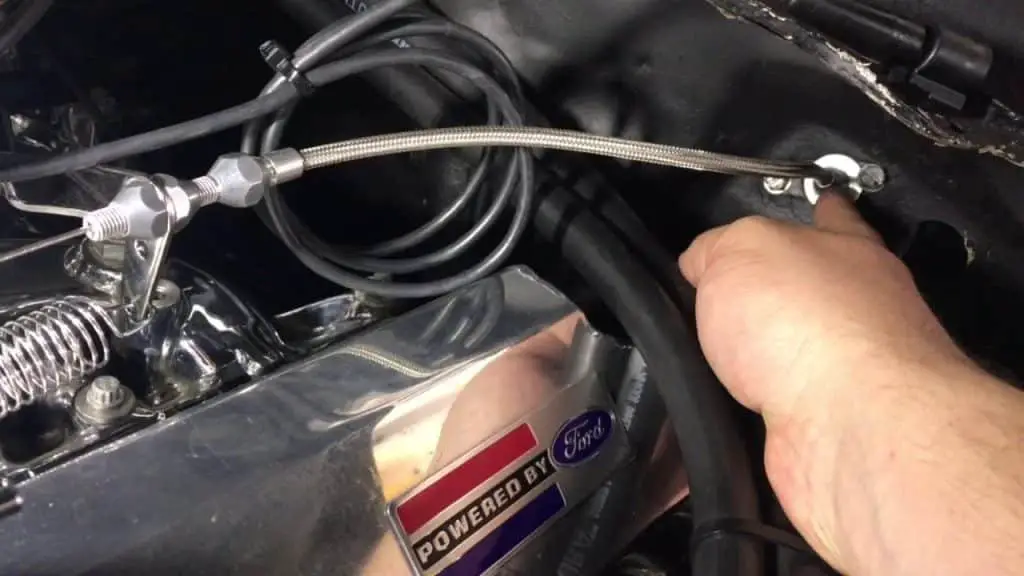
The accelerator cable is responsible for delivering the engine’s power from the throttle body to the transmission or carburetor. If these cables become frayed or otherwise damaged, they can cause your car to jerk when you try to accelerate. Fortunately, replacing these cables isn’t too difficult and can be done relatively quickly and affordably.
Defective Carburetors
A defective carburetor can lead to uneven fuel delivery, which in turn leads to jerking while accelerating. To fix this issue, you will need to either replace or repair your carburetor depending on the severity of the damage and your budget constraints.
Moisture on the Distributor Cap
The last potential cause of jerking while accelerating is moisture on the distributor cap. The distributor cap plays an important role in helping your engine generate sparks for ignition timing and fuel delivery control.
Moisture on this cap can cause misfires, resulting in a jerky acceleration process as well as poor fuel economy and performance overall. To fix this issue, you will need to clean off any moisture from the distributor cap with some electric contact cleaner before replacing it if necessary.
Clutch Problem
If neither of these solutions resolves the issue, then it could be due to a problem with your clutch. An overly worn clutch will cause jerking as you apply or release pressure on the accelerator pedal because it isn’t able to properly engage and disengage from the drivetrain correctly.
Replacing your clutch should resolve this issue but keep in mind that this is a more expensive repair than either of the previous two solutions we discussed.
Conclusion
Car jerk when accelerating can be caused by a variety issues. Fortunately though, all of these issues can be easily fixed if they’re caught early on before more serious problems occur down the line!
If you think that one of these issues may be causing car jerk when accelerating in your vehicle, then we recommend taking it into an auto repair shop as soon as possible so that they can diagnose and repair the problem quickly and safely! This way you’ll be back on the road without having any more problems in no time!

